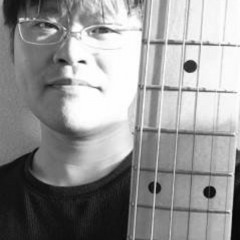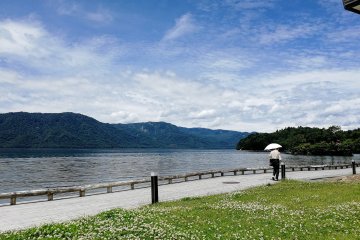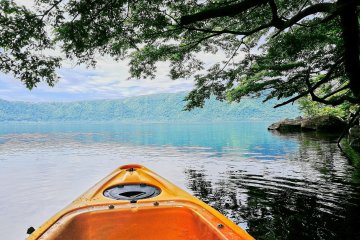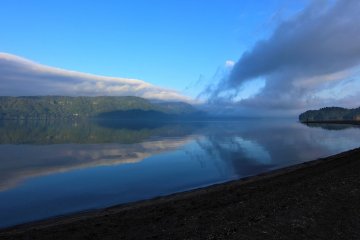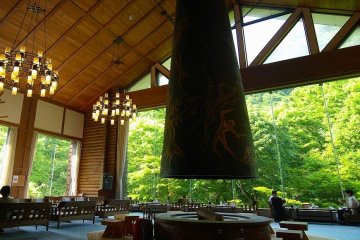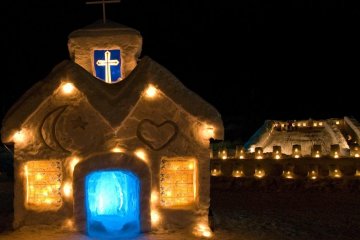Music gives expression to many stories from antiquity, not only the good old days but also times of sorrow and remorse. Music opens a whole Pandora’s Box of emotions from the depths of our hearts. Sometimes, even the place names themselves evoke a certain kind of feeling.
In blues music, the words Mississippi or the Deep South are so evocative that we are suddenly filled with certain impressions, even for Asian people like me. In Japan we have something similar, called Enka, which is a type of folk music. In the Enka narrative, Michinoku, the ancient language for Northern Japan, or Tohoku, is a word that stirs up a kind of deep feeling inside many folk here.
Today I am standing on the shore of Lake Towada. Streams of water make their way gently towards the Oirase mountains. Walking along the shores of the glimmering blue lake in perfect sunshine, I am surrounded in perfect peace. At the same time, I felt a twinge of sadness, why? I heard the word “Oirase” a lot in Enka, its sad lyrics playing in my sub-conscious. It is a strange experience, to be amongst so much beauty, and yet I am overcome with sadness.
If you have never heard Enka, you may just bathe in the beauty of the sunrays dancing on the lake. I boarded a ferry in the light afternoon sunshine, and as l glance outside, I am transported by the serenity. My heartbeat slows down in this majestic amphitheater of nature, and as I close my eyes, I can feel the inspiration for many Enka songs in this moment. It is though I had the lake to myself, its movement becoming one with my breathing.
I later learned that the Towada Lake is one of the more popular spots during the summer holidays. Nevertheless, with the thickly forested beech trees right down to the foreshore, it has kept its unspoilt feeling. It also makes boating a more accessible way to get around the lake, rather than walking its circumference.
The personality of the lake not only changes with the weather, but with the seasons as well, one that is celebrated by many ancient festivals. When people ask me, whether I prefer the Kanto or the Nebuta festival, I find it hard to answer. But come the first weekend of September, I can have both, with the colorful Nebuta floats and elegant white Kanto lanterns converging at the Lake Towada Kunizaki Border Festival. What’s more, they are accompanied by performers from Iwate’s Sansa Odori, the largest Taiko drum festival in the world according to the Guinness Book of Records. The golden triangle of Akita, Aomori and Iwate all in one magical location. Between the thunderous sound of the drums and the haunting beauty of the flutes, these huge lanterns are lit up like prayers to the night sky.
In July, the fireworks festival herald another kind of excitement, one that you can feel with all your senses, from the reflection of the fireworks on the lake, to the laughter of kids playing in the fairground-like outdoor stalls.
I was spellbound by this wilderness that gave birth to both heart wrenching folk music and the laughter of a summer festival. So whether you are a diehard Enka fan or celebrating to the beat of a summer festival, you will gain a new appreciation for a landscape that has been a wellspring of inspiration for artists of song as well as commemoration.


